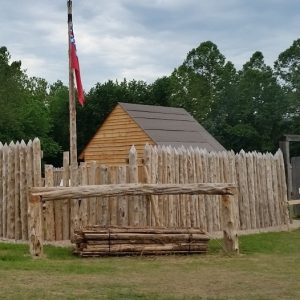Founders Feeling Homesick—and Using That Word
At this posting earlier in the month, I said that the first documented use of the English word “homesickness” was in 1756 and that the adjective “homesick” followed.
I was relying on Etymology Online, but that turns out to be mistaken.
The Oxford English Dictionary states that “homesick” first appeared in 1748 in a collection of Moravian Brethren hymns printed in London. That word was a direct translation of the German “heimweh.”
Likewise, the earliest appearance of “homesickness” in 1756 was a direct translation of “heimweh” in an edition of the travel writings of Johann Georg Keyssler.
One might assume the word was still working its way into English at that time, starting in the imperial capital. But I came across an example of the word being used in a remote corner of the British Empire. On 2 Dec 1756, none other than Col. George Washington reported to Gov. Robert Dinwiddie about provincial conscripts under his command:
In addition (and this example is noted in the O.E.D.), in November 1759 Gen. Jeffery Amherst wrote in his journal: “As soon as the homesick were getting in the boats they were immediately half recovered.”
The second appearance of “home-sick” listed in the O.E.D. is from the journal of Philip Vickers Fithian on 21 Nov 1773. By that point some familiar correspondents were also using the term:
We see that idea reflected in the way John Adams wrote of his own homesickness on 28 Mar 1783.
I was relying on Etymology Online, but that turns out to be mistaken.
The Oxford English Dictionary states that “homesick” first appeared in 1748 in a collection of Moravian Brethren hymns printed in London. That word was a direct translation of the German “heimweh.”
Likewise, the earliest appearance of “homesickness” in 1756 was a direct translation of “heimweh” in an edition of the travel writings of Johann Georg Keyssler.
One might assume the word was still working its way into English at that time, starting in the imperial capital. But I came across an example of the word being used in a remote corner of the British Empire. On 2 Dec 1756, none other than Col. George Washington reported to Gov. Robert Dinwiddie about provincial conscripts under his command:
I have used every endeavour to detain the Drafts, but all in vain. They are home-sick, and tired of work.The young colonel wrote from Fort Loudoun (recreation shown above) in what in now south-central Pennsylvania. He obviously expected his superior to understand the word.
In addition (and this example is noted in the O.E.D.), in November 1759 Gen. Jeffery Amherst wrote in his journal: “As soon as the homesick were getting in the boats they were immediately half recovered.”
The second appearance of “home-sick” listed in the O.E.D. is from the journal of Philip Vickers Fithian on 21 Nov 1773. By that point some familiar correspondents were also using the term:
- Benjamin Franklin to his son William, 30 Jan 1772: “I have of late great Debates with my self whether or not I should continue here any longer. I grow homesick, and being now in my 67th. Year, I begin to apprehend some Infirmity of Age may attack me, and make my Return impracticable.”
- Franklin to Jonathan Shipley, June 1773?: “But I grow exceedingly homesick. I long to see my own Family once more. I draw towards the Conclusion of Life, and am afraid of being prevented that Pleasure.”
- Abigail Adams to John, from Weymouth, 30 Dec 1773: “The Time I proposed to tarry has Elapsed. I shall soon be home sick. The Roads at present are impassible with any carriage. I shall not know how to content myself longer than the begining of Next week.”
We see that idea reflected in the way John Adams wrote of his own homesickness on 28 Mar 1783.
- To Abigail: “No Swiss ever longed for home more than I do.”
- To C. W. F. Dumas: “No Swiss was ever more homesick than I am.”

